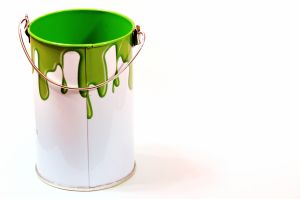 Do you want to start a new project in your home? How about going through your rooms and see what changed you can make to go green and lessen your family’s impact on the planet? There are so many changes that you can make, from the small to the large. We’ve already covered the bedroom and the bathroom. Now, let’s take a look at the garage and basement.
Do you want to start a new project in your home? How about going through your rooms and see what changed you can make to go green and lessen your family’s impact on the planet? There are so many changes that you can make, from the small to the large. We’ve already covered the bedroom and the bathroom. Now, let’s take a look at the garage and basement.
Let’s first examine insulation. Insulating the basement can really do a lot to reduce your heating costs. Even if the basement are isn’t heated, having it insulated can still reduce the impact of the cold on your home. It will also help your furnace or hot water heater stay warmer and work less. If you want to avoid fiberglass insulation, look to more eco-friendly options, such as recycled denim.
While you might not want to insulate a garage, reducing the amount of cold or heat that passes into your home from an attached garage can really impact that energy bill. Consider replacing the door that leads from your garage into your home with an insulated door (and while you are at it, choose one that is fire safe). Make sure the gaskets and seals are tight, just as you would with your front or back door.
Now, back to insulation and that water heater. You can keep your hot water hot by wrapping your hot water heater in a blanket made especially for just this purpose. It will reduce the amount of times your hot water heater needs to fire up to keep that water hot.
Do you keep the kitty’s litter box in the basement or garage? We do. One thing that we did last year was to switch from the standard litter that is mostly used for a more friendly version. Clay litter is obtained by strip mining, and other litters can be hard to dispose without impacting the landfill. Instead, we use a natural pine litter that is made from leftover pine chips. It will break down naturally over time. Another form of eco-friendly cat litter is litter than is made of wheat.
Dispose of any hazardous materials in your garage or basement properly. Any new products, such as paints, should be nontoxic. There are great paints out there that have low or no volatile organic compounds (VOCs). These compounds can contribute to smog and are not good to inhale. Other supplies, such as caulks, sealers and stains now come in water-based and plant-based formulas.
Mary Ann Romans writes about everything related to saving money in the Frugal Blog, technology in the Computing Blog, and creating a home in the Home Blog. You can read more of her articles by clicking here.
Related Articles:

